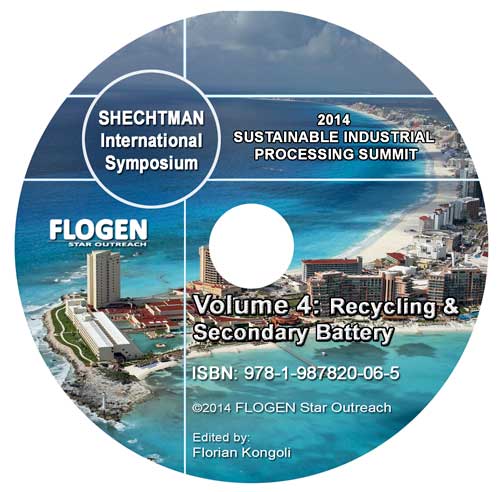2014-Sustainable Industrial Processing Summit
SIPS 2014 Volume 7: Energy Production, Environmental & Multiscale
| Editors: | Kongoli F |
| Publisher: | Flogen Star OUTREACH |
| Publication date: | 20 December 2014 |
| Pages: | 528 pages |
| ISBN: | 978-1-987820-09-6 |
| ISSN: | 2291-1227 (Metals and Materials Processing in a Clean Environment Series) |

CD shopping page
SEXTUS EMPIRICUS AND THE SCIENTIFIC SCEPTICISM
Stavros Baloyannis1;1ARISTOTLE UNIV. OF THESSALONIKI, Thessaloniki, Greece;
Type of Paper: Invited
Id Paper: 349
Topic: 18
Abstract:
Sextus Empiricus is the most eminent representative of the ancient scepticism, which is a Post-Classical, Hellenistic philosophy based on the criterion of life, the experience and the analysis of phenomena, sharply opposed to a purely theoretical pursuit of dogmatic philosophy. The term skeptisism is a derivative of the noun, skepsis, which means thought, examination, inquiry, consideration, meditation and investigation. The skeptical school was connected for a long period of time with the Empirical school of physicians, who based the good medical practice on the clinical experience rather than on the theoretical erudition. Sextus, who lived in Alexandria, Athens and Rome was an empiricist who adopted scepticism, as philosophical doctrine and way of life in view that the sceptical way was characterized by persistent commitment to investigate the truth, based on objective arguments and real evidence. The ancient sceptics, avoiding dogmatism, used to search for the truth, posing many dialectic questions about knowledge and beliefs, feeling that all arguments could be opposed by other strong arguments of the same persuasive force and validity, underlining the dynamics of the philosophical investigation and dialectics. Phenomena are the only things, which the sceptic thinkers do not deny, since they constitute the appearance of objects. Sextus' writings are the main source of most of our knowledge of ancient scepticism and the other philosophical tendencies of the Hellenistic era. Sextus offers thoroughly a general overview of scepticism, describing and explaining the meaning of the sceptical investigation, the value of suspension of judgment and the importance of the sceptical dialectics. Sextus insists that the skepticism does not accept or reject any impression and substantially does not affirm or deny anything. Sextus claims that appearances are the practical criteria of approaching to the truth and by the continuous investigation the thinker is prevented from mental or psychological inactivity. The only wise way of life is to suspend judgment, regarding everything, therefore never facing the risk of being wrong in anything. The human being has the innate capacity for perception, thinking, analysis of the phenomena, ability to distinguish what is true and what is false and to meditate avoiding dogmatism. According to Sextus doctrines, logic is based on phenomena and criteria. According to Sextus, science is considered as being the main source of pure knowledge, underling at the same time the relativity of the scientific data. Science, therefore, could not presume to provide the authoritative truth and all its issues must be understood from a dialectical perspective, since whatever is debatable may concern reality. The scientific methodology consists of investigation, as starting point, of equipollence, a balancing estimation of all positive and negative aspects, of suspension of judgment and of tranquility of mind and imperturbability. Always reality has to be investigated but appearance must be accepted without any debate, since it is clearly obvious. Every effort to approach the truth is feasible only by assessing the phenomena, since absolute reality could never be known. Sextus insists that any argument requires definite proof, precisely proven, otherwise it might lead to an infinite regression, resulting to fall into a vicious circle. Sextus insists also that arriving to a definite conclusion is not merely a matter of high education, intellectual integrity, wisdom or experience, since it is mostly a matter of the proper nature of the problem. Sextus doctrines have exerted a strong influence on the course of Western philosophy, from the seventeenth century and onwards. The sceptical influx is of substantial importance for the current philosophy of the science, the neurophilosophy, the scientific research, the modern schools of psychology, offering also an essential theoretical background for the evidence based medicine.